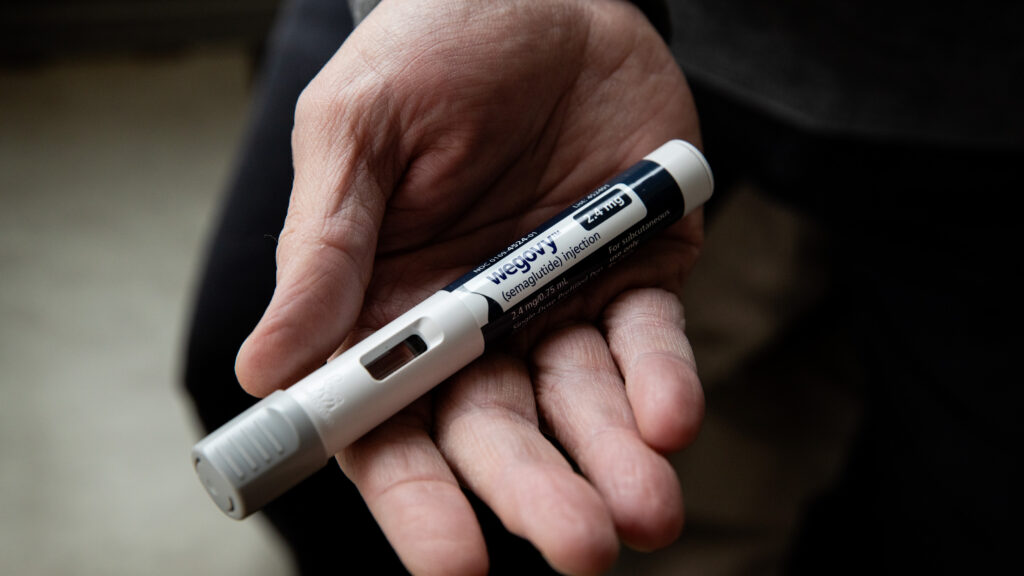Want to stay on top of the science and politics driving biotech today? Sign up to get our biotech newsletter in your inbox.
Good morning, everyone. Damian here with a look at a pioneering new gene therapy, the plight of WuXi AppTec, and a rough month for biotech’s neuroscience renaissance.
advertisement
The need-to-know this morning
- AstraZeneca said it would acquire Fusion Pharmaceuticals in a deal worth more than $2 billion, picking up a company focused on the booming area of targeted radiation therapies for cancer.
- Crinetics Pharmaceuticals said its experimental drug called paltusotine achieved the goals of a Phase 3 study in patients with acromegaly, a rare endocrine disorder. Crinetics intends to submit a marketing application to the FDA in the second half of the year.
- PureTech Health proposed a return of $100 million to its shareholders by way of a tender offer of its shares. PureTech made nearly $300 million from its remaining stake in Karuna Therapeutics, which was acquired by Bristol Myers Squibb.
- Madrigal Pharmaceuticals raised $600 million in a follow-on stock offering, following last week’s approval of its drug to treat the liver disease known as MASH.
FDA approves a pioneering gene therapy
Orchard Therapeutics yesterday won U.S. approval for a gene therapy that, when given early in patients’ lives, can nearly cure a devastating inherited disorder that eats away at children’s neurons.
As STAT’s Jason Mast reports, the treatment is called Lenmeldy, and it’s the first medicine approved for metachromatic leukodystrophy, or MLD, a rare disorder that results in disability and death. Orchard, acquired last year by Japanese drug developer Kyowa Kirin, has already won approval for the treatment in Europe.
Lenmeldy will become the latest gene therapy to test whether costly, transformational therapies for rare disease can make for a sustainable business. The company hasn’t disclosed how much Lenmeldy will cost, but independent pricing watchdogs have said it would be cost-effective at anywhere between $2.3 million and $3.9 million for a single dose.
advertisement
A U.S. ban would cut WuXi’s business by two-thirds
That’s according to the embattled Chinese company’s latest financial statements, in which customers in the U.S. accounted for 65% of its $5.6 billion in revenue last year.
This comes as Congress moves forward with legislation that would effectively ban U.S. companies from doing business with a handful of Chinese life sciences firms, including WuXi AppTec. The company provides development and manufacturing services for drug companies around the world, and its U.S. customer base increased by 42% in 2023, according to its earnings report. WuXi has argued that its inclusion in the legislation, which primarily targets genomics companies, is an error and said it has “been actively working together with its advisors to set the record straight and advocate for changes to the proposed legislation.”
The bill in question, called the Biosecure Act, would harm more than just WuXi. Scores of U.S. drugmakers rely on WuXi to conduct studies and manufacture products. If contracting with the company became functionally illegal, those firms would have to restructure their supply chains, risking drug shortages that could leave patients wanting.
Wegovy and Zepbound get primetime treatment
ABC aired a special from Oprah Winfrey last night about how new GLP-1 drugs are helping patients and changing the perception of obesity as a disease rather than a failure of willpower, giving even more exposure to Novo Nordisk’s Wegovy and Eli Lilly’s Zepbound.
“In my lifetime, I never dreamed that we would be talking about medicines that are providing hope for people like me who have struggled for years with being overweight or with obesity,” said Winfrey, who is on an obesity medication herself.
The hour-long segment featured patients taking the treatments, doctors who consult for GLP-1 drugmakers, and even representatives from Novo and Lilly, who sat side-by-side in the audience.
Though patients on the special brought up the prohibitive cost of the latest obesity drugs (which amounts to over $10,000 annually based on list price), the pharmaceutical representatives pointed to insurance coverage policies that need to change.
“Access is complex just like the disease itself is complex. The obesity medications are not covered to the same extent, and that’s why that out of pocket cost is what it is,” said Negelle Morris, a senior vice president at Novo. Meanwhile, Rhonda Pacheco, a group vice president at Lilly, said. “when you look at obesity, it’s nowhere near the coverage that we need.”
Geron’s three-decade journey to takeout speculation
Geron, a creature of biotech’s 1990s stem cell craze, has managed to survive multiple eras of the industry and come out the other side with an approvable medicine. The question now is whether the former penny stock has emerged as a legitimate takeover target.
As STAT’s Adam Feuerstein reports, Geron’s turnaround is due to imetelstat, a treatment for blood cancer whose up-and-down development path led many (Adam included) to write off the company’s hopes of turning it into a product. After last week’s recommendation from a panel of FDA advisers, imetelstat looks destined for approval, and Geron believes it could bring in peak sales of about $3.5 billion.
It could also bring in takeover interest. Novartis, Incyte, and Jazz Pharmaceuticals all work in blood cancer, and each might benefit from adding Geron’s drug to its offerings.
More reads
- The methadone clinic monopoly: Opioid treatment chains backed by private equity are fighting calls for reform, STAT
- AstraZeneca to cap out-of-pocket inhaler costs in U.S., following rival Boehringer’s move, Reuters
- Pfizer plans to sell about £2 billion of shares in Haleon, Bloomberg

